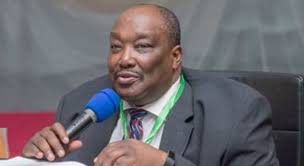A former President of the Nigerian Bar Association (NBA), JB Daudu (SAN), has called for a significant upgrade in the minimum educational requirements for entry into the Nigerian Police Force, urging that applicants possess a university degree or its equivalent.
Daudu, who currently coordinates the Rule of Law Development Foundation, made the call during the foundation’s 13th webinar held Tuesday in Abuja. The event focused on the theme, “Overview and Mid-Term Report of The Administration of President Bola Ahmed Tinubu (May 2023 – May 2025).”
He argued that recruiting a more educated police workforce would improve the force’s ability to address complex challenges and enhance overall effectiveness.
He said, “This will ensure that all entry-level officers receive mandatory training on the recognition and enforcement of fundamental human rights as enshrined in the Nigerian Constitution. It will also ensure proper firearms handling training to reduce accidental discharges and abuse that citizens currently endure.”
Daudu lamented the widespread perception of the police force as moribund and corrupt, noting that many Nigerians avoid reporting crimes for fear of being victimized or exploited.
He urged the federal government to commence a comprehensive rebranding of the Nigerian Police, including improvements in remuneration, insurance coverage, housing programs, promotions, healthcare, and educational support for officers.
The senior lawyer emphasized the urgent need to reform disciplinary protocols for security agencies, calling for criminal prosecution and appropriate punishments for offenses such as reckless misuse of firearms leading to injury or death.
Daudu also weighed in on the controversial issue of state police, which he previously championed.
He said, “Twenty years ago, I advocated for autonomous state police, but I can no longer support a blanket creation of state police under governors due to the current political immaturity at the state level. State police at this time could worsen tensions and spark civil unrest in parts of the country.”
As an alternative, he proposed establishing a “community police” system, where each ward in a local government area would have an office responsible for crime reporting and monitoring suspicious activities.
He explained, “When threats escalate beyond community capacity, the State Police Command should intervene. Funds currently spent on palliatives could be redirected to equip these community security offices.”
He concluded with a caution on corruption among community police officers, stressing the need for strict punishments for abuses of power.
(NAN)


